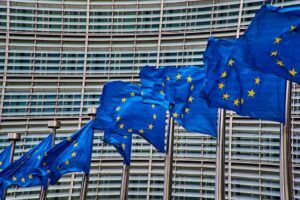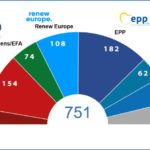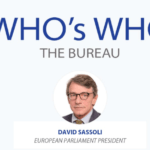The European Commission set out its ideas for shaping the Conference on the Future of Europe, which should be launched on Europe Day, 9 May 2020 and run for two years.
The Communication adopted is the Commission’s contribution to the already lively debate around the Conference on the Future of Europe – a project announced by President Ursula von der Leyen in her Political Guidelines, to give Europeans a greater say on what the European Union does and how it works for them. The Conference will build on past experiences, such as citizens’ dialogues, while introducing a wide range of new elements to increase outreach and strengthen ways for people to shape future EU action. The Conference will allow for an open, inclusive, transparent and structured debate with citizens of diverse backgrounds and from all walks of life. The Commission is committed to follow up on the outcome.
Aims
The Commission proposes two parallel work strands for the debates.:
- The first should focus on EU priorities and what the Union should seek to achieve: including on the fight against climate change and environmental challenges, an economy that works for people, social fairness and equality, Europe’s digital transformation, promoting our European values, strengthening the EU’s voice in the world, as well as shoring up the Union’s democratic foundations.
- The second strand should focus on addressing topics specifically related to democratic processes and institutional matters: notably the lead candidate system and transnational lists for elections to the European Parliament.
A new public forum for an open, inclusive and transparent debate
The Commission sees the Conference as a bottom-up forum accessible to people well beyond Europe’s capitals, from all corners of the Union. Other EU institutions, national Parliaments, social partners, regional and local authorities and civil society are invited to join. A multilingual online platform will ensure transparency of debate and support wider participation. The Commission is committed to taking the most effective actions, with the other EU institutions, to integrate citizens’ ideas and feedback into EU policy-making.
Background
The European Parliament and the Council are also working on their contributions to the Conference on the Future of Europe. The European Parliament resolution of 15 January 2020 called for an open and transparent process which takes an inclusive, participatory and well-balanced approach towards citizens and stakeholders. Meanwhile, the European Council conclusions of 12 December 2019 called on the Croatian Presidency to begin work on the Council’s position. The Croatian Presidency has itself listed the Conference among its Presidency Priorities.
After this, it is of crucial importance that the three institutions work together towards a Joint Declaration to define the concept, structure, scope and timing of the Conference on the Future of Europe, as well as setting down its jointly agreed principles and objectives. This Declaration will later be open to other signatories including institutions, organisations and stakeholders. National and regional Parliaments and actors have an important role to play in the Conference and should be encouraged to hold Conference-related events The Commission underlines in its contribution today that it is commited to follow up on the outcomes and recommendations of the different debates.
The Commission proposes to officially launch the Conference on Europe Day, 9 May 2020 – 70 years after the signing of the Schuman Declaration and 75 years after the end of the Second World War.
For More Information
Communication: Shaping the Conference on the Future of Europe







Leave a Reply